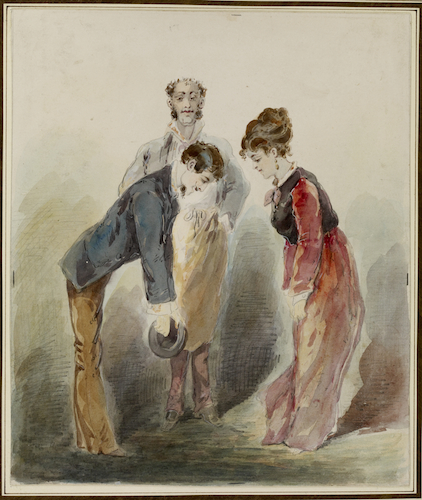“Any pattern of stressful experience, you are co-creating,” stated the couples workshop leader at Spirit Rock Meditation Center.
I stared at my wife who was sitting with her arms crossed. Later in the day, we got in a fight during one of the exercises.
I kept obsessing with my wife’s inability to take responsibility for any conflicts we were having, including the ones arising in this workshop. The drive home seethed with silence and discomfort.
Months later, I realized that I was not taking responsibility for my part in the conflict because I wanted my wife to take responsibility for her role. The classic, “I’m not going to surrender until you surrender first” standoff.
One of the most challenging and powerful aspects of Ho’oponopono is the insistence to take 100% responsibility for anything arising in your experience. Ho’oponopono literally means to make right (ho’o) more right (pono) or to make righteous more righteous (pono). The word righteous often traps me in arrogance, so I like to think of ho’oponopono as to make divinity more divine.
What is implied in ho’oponopono is the concept of “I ka pono mea”—everything is righteous/divine. What I fail to recognize when I want to blame my wife for a dispute is that she is already right/righteous/divine. The only thing causing drama/conflict/trouble (pilikia) is my mind/ego.
When Dr. Ihaleakala Hew Len walked into the Hawaii State Hospital ward for the criminally insane over 30 years ago, he took 100% responsibility for all the murderers and rapists. He looked inside himself and asked, “What in me is causing me to experience this aspect of reality?” Then he healed these disruptions inside himself by repeating, “I love you; I’m sorry; please forgive me: thank you.”
Dr. Len was not apologizing to the patients or even himself. He was apologizing, recognizing, thanking, and asking for forgiveness from the divine. He was taking responsibility for his role in creating the drama/conflict/trouble (pilikia).
Within months, patients started to change, heal, and leave the ward. Within a few years, the mental ward for the criminally insane was closed because all the patients had been released or transferred.
Using Dr. Len as a role model, I have committed myself to practicing Ho’oponopono with my wife. When she told my sons, “Your father is an idiot,” I took responsibility for this pilikia and repeated in my mind, “I’m so sorry; I love you; please forgive me; and thank you.” I no longer react to this disrespect. As Alice Miller says, “Disrespect is a weapon of the weak.” Anyone who breaks off from the divine is in a position of weakness.
I should point out that I don’t expect my wife to change. I have no idea what the future holds for us. The funny thing about practicing ho’oponopono is that you put faith in a higher power. The higher power might make my wife see her role in her own suffering or it might make my wife disappear. Either way, my job is to keep “cleaning”—“I am so sorry; I love you; please forgive me; and thank you.”
I suspect that some of you may think that I am crazy or masochistic. My response would be the same thing I told my sons the other day: “When someone is pilikia, you have a choice. You can react and be pilikia yourself or you can have compassion for their suffering and be pono.”
I finally understand what the Dalai Lama was talking about when he said that he is thankful for the Chinese government, who has kept him in exile for over half a century, tortured his people, and burned his monasteries. I am thankful for my wife, especially when she is pilikia. She deepens my love, compassion, gratitude, and connection with the divine.
One of my aikido masters had a similar attitude. Every time I attacked him (or often right before I attacked him), he would smile and say, “Yes!” It felt like he was saying, “Thank you for attacking me, so we can bring harmony back into the universe.”
Every relationship we have is an opportunity to deepen into pono or pilikia. If we take 100% responsibility and respond with love, forgiveness, and gratitude, we might one day realize what it means to make divinity more divine.
Love elephant and want to go steady?
Sign up for our (curated) daily and weekly newsletters!
Author: Kozo Hattori
Editor: Travis May
Photo: Wikimedia Commons







Read 2 comments and reply